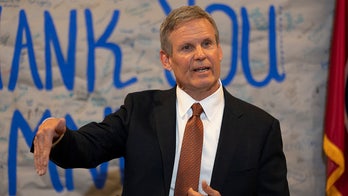The White House called a groups of veterans organizations for a meeting to discuss the impact if an agreement isn't reached on raising the debt ceiling.
They met with administration officials in the Roosevelt Room at the White House at 4:30p.m. Tuesday.
David Autry, spokesman for Disabled American Veterans (DAV), said his organization received a call Monday night about the meeting. Autry says his group has been in consultation with the White House off and on about the issue.
Monday night in a prime time address to the nation, President Obama once again brought up the issue that veterans checks could be in jeopardy if lawmakers can't reach an agreement on raising the debt ceiling.
"[W]e would not have enough money to pay all of our bills - bills that include monthly Social Security checks, veterans' benefits, and the government contracts we've signed with thousands of businesses," Obama said.
It's unclear if the White House has made arrangements with other groups who whose checks would be affected by a default.
"As the White House routinely does, we meet with groups from a wide range of backgrounds to discuss topics of interest. Obviously, there is an intense interest in current discussions with Congress to reduce the deficit and meet our obligations. Today we met with veterans and military service organizations to discuss what is at stake if Congress does not find consensus on this important issue," White House Spokesperson Shin Inouye said in a statement.
Autry says that August benefits aren't an issue for the DAV, since those have been already taken care of, but says that veterans benefits might be a high priority and if the federal government can't pay all the bills, this should be one they definitely pay.
The DAV is also launching a virtual march on Facebook Wednesday, encouraging participants to raise awareness on the issue.
At Tuesday's press briefing, White House Press Secretary Jay Carney said that if a default occurred, the president and executive branch would have input on what is paid.
"I think the reality is clear -- the 80 million checks that have to be issued, the fact that we need to borrow in order to pay our bills. We'll see how this process goes forward. Again, we just don't anticipate, and certainly hope that that will not happen," Carney said.




